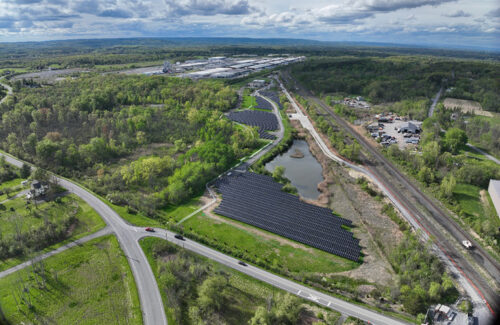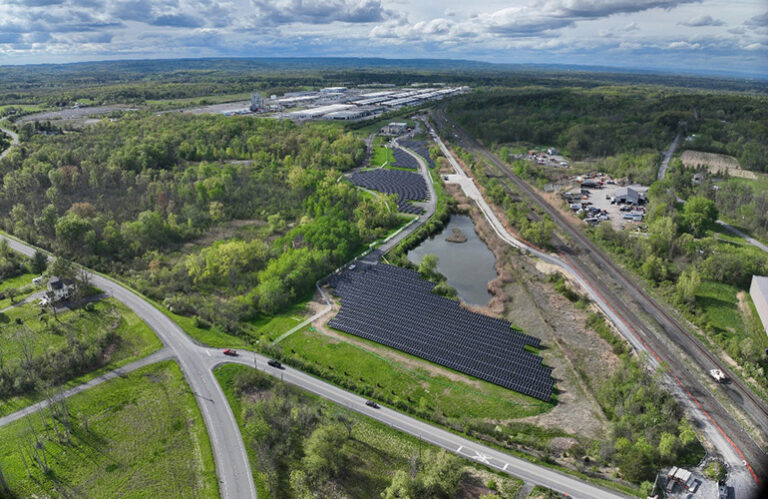 Nautilus Solar Energy announces the opening of the first community solar project developed on a former Defense Used Land (FUDS). Located near the Northeastern Industrial Park in Guilderland, Albany County, New York, this innovative initiative demonstrates the transformation of a liability into a significant environmental asset. The 2.8 MW project will provide clean energy to more than 260 New York households and anchor subscribers in National Grid’s utility footprint.
Nautilus Solar Energy announces the opening of the first community solar project developed on a former Defense Used Land (FUDS). Located near the Northeastern Industrial Park in Guilderland, Albany County, New York, this innovative initiative demonstrates the transformation of a liability into a significant environmental asset. The 2.8 MW project will provide clean energy to more than 260 New York households and anchor subscribers in National Grid’s utility footprint.
“The successful development of this community solar park on a FUDS site sets a new precedent in sustainable energy projects. It is a proud moment for Nautilus as we contribute to the clean energy transition while promoting local economic growth,” said Eric LaMora, Executive Director of Community Solar at Nautilus Solar Energy.
Located on the site of the Altamont Municipal Waste Landfill and Burn Pit, the area was previously the Schenectady Army Depot – Voorheesville Area, a critical facility of the United States Department of the Army from 1941 to 1969. This depot played a critical role in receiving, storing, and shipping military supplies during World War II and the Korean War. Extensive environmental maintenance at the site was conducted by the US Army Corps of Engineers under the Defense Environmental Restoration Program for Formerly Used Defense Sites (DERP-FUDS). As a result, the community solar park was developed with special accommodations to protect the land. For example, the photovoltaic array is mounted on the vegetated landfill as a fixed tilting ballast system, ensuring minimal disruption to the underlying structure.
The community solar park offers subscribers who want the benefits of solar energy, but cannot install solar panels on their own home, the opportunity to subscribe to community solar energy at a discount on the standard electricity rate. Community Solar supports New York’s Climate Leadership and Community Protection Act (Climate Act), which requires the state to obtain 70 percent of its electricity from renewable sources by 2030. The law also ensures that at least 35 percent of the benefits of clean energy investments are realized. targeting underserved communities (DAC) and low-to-moderate income (LMI) subscribers.
Construction of this project generated local jobs and supported full-time positions involved in electrical maintenance and vegetation management on site.
News item from Nautilus Solar Energy


